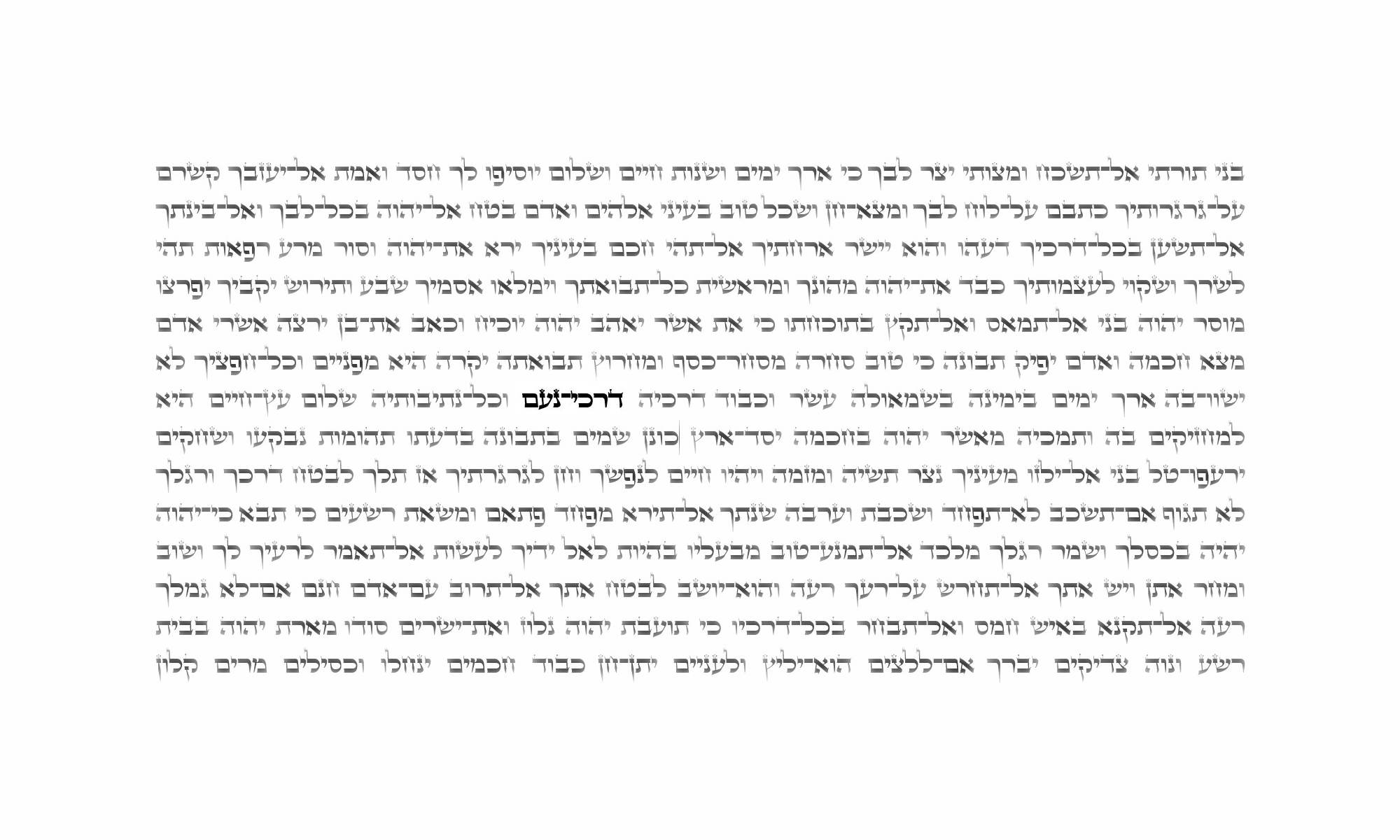In this week’s parsha we learn the famous passuk that we recite every day in the davening of Shema: “Shema Yisrael Hashem Elokeinu Hashem Echad, Hear O Israel Hashem is our G-d, Hashem is the one and only. You shall love Hashem your G-d with all your heart, with all your soul and with all your resources…” (6:4; 6:5).
This commandment to love Hashem seems to suggest that love, albeit an emotion, is very much controllable. In order to be able to fulfil a commandment predicated on our hearts, this mitzva to love Hashem seems to suggest that our hearts need to be under our own command. If this is so, then there must be some practical tips we can exercise to enhance our love of Hashem and, by extension, His people. Let’s explore.
One way to increase our love for something is to become more similar to it. In his book “Getting to Know Yourself,” Rav Ithamar Schwartz (the Bilvavi) teaches there are two main hinderances to loving another (assuming we are not self-absorbed but are ready to be a giver and focus on the other). One factor is an aversion to evil/negative in another person. The other factor is caused by differences between us and the other person. We fill focus here only on the latter.
According to Bilvavi, even if we have the right intentions and our hearts are in the right place, we face difficulties when trying to bond with someone who is diametrically opposite to us. One reason the Rav suggests is because it is hard to co-exist in daily life with someone who has such different habits and ways to us. Our annoyance or frustration in such cases may block us from loving another.
Another reason we may find it easier to love those similar to us is because we naturally tend to love ourselves. So the more similar another is to us, the more we can identify with the “I” or our own ego in the other. In contrast, the differences between us put up a barrier which may automatically block our self-love from spilling over to those who are more different.
This is perhaps one reason why parents naturally love their children more than other people’s children (though there are arguably many more reasons not explored here). Since their children are more likely to share at least some traits and values with their parents (or at a very minimum even just their surname!), the parents are more likely to understand, emphathise and expand their hearts to encompass their children (really a form of self-love). In contrast, parents may find it a little less natural to love other people’s children who are very different from them.
How does this teaching apply to increasing our love for Hashem?
Perhaps the explanation is one reason for us to emulate Hashem. In a later parsha of Devarim (see 28:9) we are taught:
Hashem will establish you before Him as a sacred nation as He has promised you when you observe the commandments of Hashem your G-d and you go in His ways. (Sefer Devarim 28:9)
According to Rambam, “going in His ways” is interpreted to mean imitating Hashem and being like Him in all His characteristics and actions.
Though the halacha directs many of our actions, perhaps this commandment go “go in His ways” covers those “grey” areas where the halacha is not clear or does not apply. For instance, this may encompass things like who to side with in an argument, how to avoid offending without entering lashon harah, which neighbourhood to live in etc etc etc.
However, this has also been interpreted to refer to not to actions but to Hashem’s characteristics. Thus, this commandment is directing us not only to follow the halachic guidelines for our actions, but to bend our characters to emulate Hashem. “We must focus not only on what we do, but who we are.” (For more, see here). For instance, Rambam teaches that acting in moderation and acting the right way for the right reason are two ways to achieve this goal of emulating Hashem.
Yet, arguably an ancillary benefit of emulating Hashem is not only to grow greater characters, make better choices and be holier, but also to help us fulfil the commandment of loving Hashem. When we are acting and behaving more like Him, we are more likely to be in sync with our natural tendency to love another, in this case Hashem!
How can we relate this message to our parenting practice this week?
When we knead the dough erev Shabbas to make our challot, we mix and knead the dough into one big whole. The way I learned it, we subsequently say a bracha and THEN separate the “challah” and then shape the loaves. Thus, we start with a whole lump of dough, and the bracha comes when the dough still consists of one large sum, warm and fresh, expanded and expansive.
As parents, we may sometimes feel the need to shape and mould our children’s characters. We may presume that in order to do our job properly, we must focus on our children’s deficiencies in order to iron out problems. In doing so, we may focus extensively on their differences from us. In contrast if we are simply aiming to love our children more, we see that one method is to see view as more similar to us.
How can focus more on their similarities to us in practice? By taking a step back. By focusing on the stage before the separating and shaping. By remembering that though we each have individual differences and quirks, all our family members originally come from the same raw loaf. We are all Hashem’s children, and we can unite with our individual children in the bond of His love.
On this Shabbat following the Tu B’Av, may we be blessed with the ability to genuinely love Hashem and all of His creations.
With bracha,
Danielle Ledder
